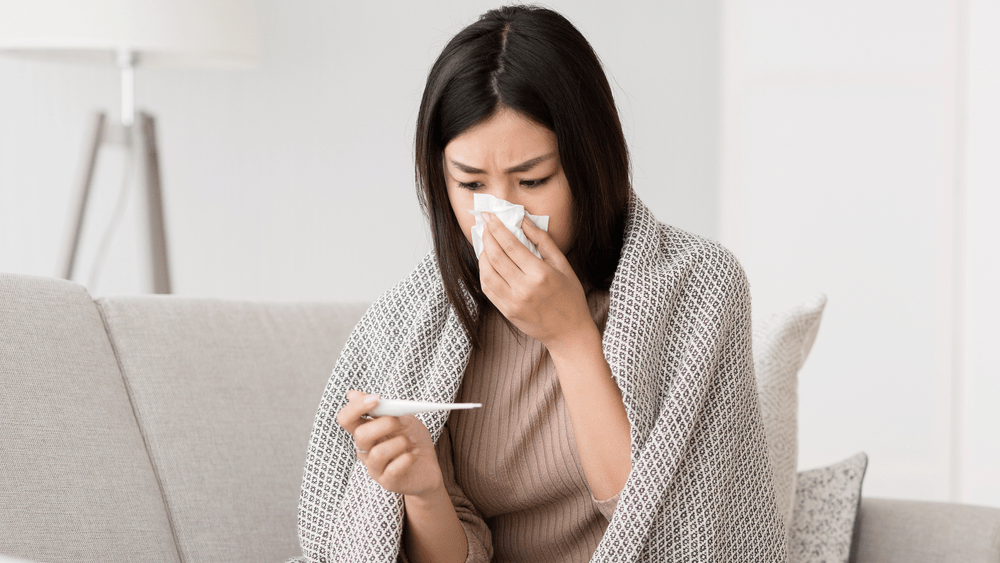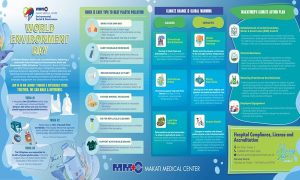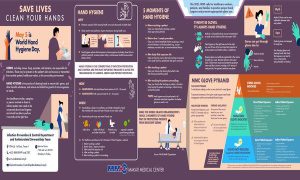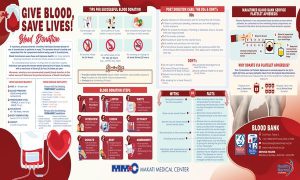One of the most vital functions the human body has is the immune system. It defends the body against infections and protecting it to maintain overall health.
A fully-functioning immune system may go unnoticed in day-to-day life as it shields the body from invading pathogens, but it is only when it delivers a stronger response to infection that people experience the symptoms of a disease. This natural protection system is a crucial function in the face of the current global health crisis. Without a vaccine or a confirmed cure, everyone is vulnerable to COVID-19.
How does the body’s immune system work?
When the body comes into contact with a foreign substance or antigen, the immune system is triggered. When the antigens attach to specific receptors on the immune system’s cells, the body goes through a series of processes.
If this is the first time the body encounters a particular disease-causing germ, the immune system’s cells typically store information about the germ to find ways to fight it. Thus, when the body encounters the same pathogen, the system will recognize it and fight it more effectively.
There are two subtypes of immunity: innate and adaptive or acquired. Innate immunity, also known as the non-specific immune system, provides the body with a general defense system against infectious diseases and harmful substances. Adaptive or acquired immunity, meanwhile, manufactures specific antibodies that effectively fight germs that the body has previously encountered.
Now, more than ever, it is crucial to keep the body’s immune system at peak condition to lessen the risk of catching SARS-CoV-2 and other foreign invaders.
Ways to boost the immune system
A well-functioning immune system is maintained and supported by a healthy lifestyle. In general, these tips benefit both the immune system and the body’s overall well-being.
1. Maintain a healthy diet
The body reaps many benefits from a healthy meal. Experts recommend a diet rich in fruits, vegetables, whole grains, and healthy fats. Plant-based foods are rich in vitamins and antioxidants.
Meanwhile, healthy fats like those found in olive oil and salmon can boost the body’s immunity through their anti-inflammatory properties. It is also advisable to lessen sugars and refined carbs.
2. Drink plenty of water
While hydrating may not directly contribute to protecting the body from bacteria and viruses, it is crucial to maintaining overall health. Dehydration causes headaches and affects physical performance, digestion, and heart and kidney function, increasing the susceptibility to illness.
Make sure to meet the recommended water intake of 2.7 liters per day for women and 3.7 liters per day for men.
3. Get enough hours of sleep
Sleep directly affects the immunity of the body. In a 2019 study, people who got eight hours of sleep had higher levels of T cells (a type of cell that destroys compromised cells) than those who slept less.
In another study, adults who slept fewer than 6 hours each night were found to be more likely to catch a cold than those who slept more than 6 hours. Ensure ample sleep time by managing stress, reducing smartphone and gadget use before bed, and maintaining a nighttime routine.
4. Minimize stress
Stress can take its toll on the body, both mentally and physically. Chronic stress or anxiety can cause the body to produce stress hormones that can suppress the immune system. It can also promote inflammation and imbalances in immune cell functions.
Practice stress management by talking to loved ones, taking up mindfulness exercises and meditation, and seeing a licensed counselor or therapist.
5. Stay active
Moderate exercise can help boost the immune system, allowing antibodies and white blood cells to circulate more rapidly. It also aids in lowering the body’s amount of stress hormones. Types of moderate exercise include steady bicycling, brisk walking and jogging, swimming, and light hiking. It is advisable to aim for at least 150 minutes of moderate exercise per week, but make sure these are all well within GCQ guidelines.
6. Moderate alcohol consumption
While beneficial in moderate amounts, alcohol can have several adverse effects on the body in larger quantities. As the body attempts to detoxify the system from high amounts of alcohol, the normal immune system function is weakened.
A 2015 study reports that people who drink high amounts of alcohol are more likely to get pneumonia, acute respiratory distress syndrome, alcoholic liver disease, and certain cancers. When possible, avoid alcohol consumption or limit it to 1 to 2 drinks per day.
7. Quit smoking
Smoking plays a role in lowering immunity, as the chemicals released by cigarette smoke—namely carbon monoxide, nicotine, nitrogen oxides, and cadmium—may interfere with the functions and growth of immune cells.
Experts have also found that smoking can worsen viral and bacterial infections, especially those of the lungs. Explore options to help quit smoking safely, if not avoid picking up the habit entirely.
Putting Health First
In the face of COVID-19 or other pathogens and illnesses, the body’s first line of defense is its immune system. Keeping up one’s overall health and making a conscious effort to live a healthier life can give the immune system the boost it needs.
Reach out to Makati Medical Center for quality annual and executive check-ups that cover a wide range of health concerns, including immune systems and diseases.









